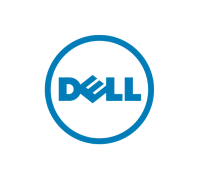AzureTraining
Online Azure Training Course
In the rapidly advancing world of cloud computing, Microsoft Azure stands as a cornerstone for businesses seeking scalable, secure, and innovative solutions. Geekonik, a leading online institute in Delhi NCR, offers the Best Online Azure Training to empower aspiring cloud professionals with the skills to excel in this high-demand field. With a focus on practical learning, industry-aligned curricula, and expert mentorship, Geekonik is transforming learners into Azure-certified professionals ready to shape the future of cloud technology in Delhi NCR and beyond.
Why Geekonik for Azure Training?
Geekonik’s Online Azure Training is designed to meet the needs of beginners, IT professionals, and businesses looking to leverage cloud technology. Based in the thriving tech hub of Delhi NCR, Geekonik combines cutting-edge content with hands-on experience to deliver a learning journey that is both accessible and impactful. Here’s what sets Geekonik apart:
Comprehensive Azure Curriculum: The course covers the full spectrum of Azure services, from foundational concepts like virtual machines and storage to advanced topics such as Azure DevOps, Kubernetes, AI integration, and serverless computing. It aligns with Microsoft Azure certifications, including AZ-104, AZ-204, and AZ-305.
Industry-Expert Faculty: Geekonik’s instructors are Azure-certified professionals with years of experience in cloud architecture, deployment, and management. Their real-world insights ensure students gain practical skills applicable to enterprise-level projects.
Flexible Online Learning: With a fully online format, Geekonik offers live sessions, recorded lectures, and interactive labs, allowing learners in Delhi NCR and beyond to study at their own pace. This flexibility is ideal for working professionals and students balancing multiple commitments.
Hands-On Labs and Projects: Geekonik emphasizes experiential learning through Azure’s sandbox environment. Students work on real-world scenarios, such as deploying web applications, configuring cloud security, and optimizing infrastructure costs, building a portfolio that showcases their expertise.
Career Support and Networking: Geekonik partners with leading tech firms in Delhi NCR to provide internship opportunities, job placement assistance, and networking events. From resume-building workshops to mock interviews, the institute ensures students are job-ready.
Course Highlights
Geekonik’s Azure training is tailored to learners at all levels, from beginners exploring cloud computing to professionals aiming for advanced certifications. Key modules include:
Azure Fundamentals: Learn core cloud concepts, Azure services, and pricing models, ideal for those new to cloud technology.
Azure Administrator Track: Master infrastructure management, including virtual networks, storage solutions, and identity management with Azure Active Directory.
Azure Developer Track: Dive into app development with Azure Functions, Logic Apps, and API Management, focusing on building scalable solutions.
Azure Solutions Architect Track: Explore advanced cloud architecture, including hybrid cloud setups, disaster recovery, and cost optimization strategies.
DevOps and Automation: Gain expertise in Azure DevOps, CI/CD pipelines, and Infrastructure as Code (IaC) using ARM templates and Terraform.
Each module includes hands-on labs and projects, ensuring students can apply their knowledge to real-world cloud challenges.
Why Delhi NCR for Azure Training?
Delhi NCR is a powerhouse for IT and cloud innovation, hosting global corporations, startups, and tech hubs. The demand for Azure professionals is soaring in industries like IT, finance, healthcare, and e-commerce, as businesses increasingly migrate to the cloud. Geekonik’s training taps into this ecosystem, offering localized expertise while preparing students for global opportunities in cloud computing.
Unique Features of Geekonik
Personalized Mentorship: Each student receives one-on-one guidance from Azure experts, helping them navigate complex concepts and career decisions.
Collaborative Community: Geekonik fosters a vibrant learning environment through group projects, cloud hackathons, and discussion forums, encouraging peer-to-peer collaboration.
Affordable and Accessible: With competitive pricing, flexible payment plans, and scholarships, Geekonik ensures high-quality Azure training is within reach for all.
Certification Preparation: The course prepares students for Microsoft Azure certifications, enhancing their credibility and employability in the competitive job market.
Success Stories
Geekonik’s impact is evident in its alumni, who have secured roles at top companies like Microsoft, TCS, and HCL. For instance, Vikram Singh, a former network administrator, transitioned to an Azure Solutions Architect role after completing Geekonik’s training. “The hands-on labs and mentor support were critical to my success,” he shares. Similarly, Priya Malhotra, a recent graduate, now works as a cloud developer at a Noida-based startup, crediting Geekonik’s practical approach for her career leap.
Staying Ahead with Geekonik
Geekonik keeps its curriculum at the forefront of industry trends, incorporating the latest Azure advancements like AI-driven analytics, Azure Arc, and machine learning services. This ensures students are equipped to handle both current and emerging cloud challenges.
Join Geekonik’s Azure Training Today
Geekonik’s Best Online Azure Training in Delhi NCR is your gateway to a thriving career in cloud computing. Whether you’re a beginner, an IT professional, or a business leader, Geekonik provides the tools, expertise, and support to master Azure and drive innovation. Enroll today at Geekonik’s website to explore the course, connect with advisors, and join a community of cloud enthusiasts. With Geekonik, you’re not just learning Azure—you’re building the future of cloud technology in Delhi NCR and beyond.
Any Doubt ?
Get The Best Experience with Us
Our Tech Training Program is designed to bridge the gap between theoretical knowledge and real-world application. Whether you’re a beginner looking to enter the tech industry or a professional aiming to upgrade your skills, our courses are tailored to meet your needs.
What they say!

very informative . I suggest to please join geekonik its help to build your carrier in IT Domain
Our Partners
At Geekonik, we believe in the power of collaboration. Our partners play a vital role in helping us deliver world-class tech education and career opportunities to learners across the globe.We proudly work with leading technology companies, educational institutions, and industry experts to ensure our training programs stay relevant, practical, and aligned with real-world demands.






Our Partners









